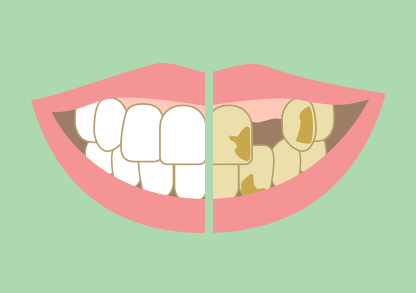How many teeth are in a pack of cigarettes?

Four to five teeth.
The dental dangers of smoking
Smokers are about twice as likely to suffer from gum disease than non-smokers, according to the Centers for Disease Control (CDC). The more cigarettes you smoke each day and the longer you smoke also contribute to the likelihood you’ll develop gum disease. That’s a big deal since gum disease caused by smoking is a major cause of tooth loss in smokers.
There is good news, however! The long-term effects of smoking don’t include tooth loss. When you quit smoking, your risk of losing teeth is about the same as people who have never smoked.
Men who smoke lose 2.9 teeth for every 10 years of smoking, according to the Academy of General Dentistry. For women, it's 1.5 teeth per decade.

How does smoking hurt your teeth?
Why does smoking promote periodontal (gum) disease and tooth loss? One theory is that tobacco may restrict the blood flow to the gum tissues, which would limit the nutrients necessary to the bone and periodontal support of the teeth.
Another theory is that smoking causes a chain of events in the mouth that eventually leads to tooth loss. The chain starts with plaque buildup on teeth, which is linked to tartar buildup, which can cause gingivitis. From there, the smoker develops periodontal disease. The final result is tooth loss.
The chain can be broken by brushing and flossing regularly and by stopping the use of tobacco.

Last updated April 1, 2022
Related articles:
The oral health information on this website is intended for educational purposes only. Always consult a licensed dentist or other qualified health care professional for any questions concerning your oral health.


